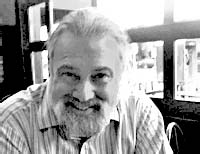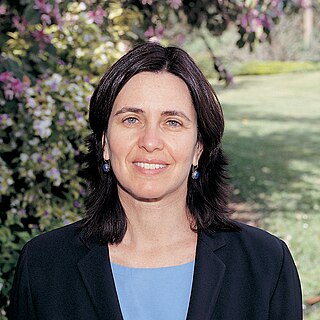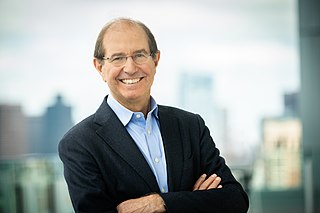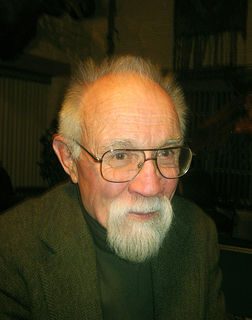
David Chaum is an American computer scientist and cryptographer. He is known as a pioneer in cryptography and privacy-preserving technologies, and widely recognized as the inventor of digital cash. His 1982 dissertation "Computer Systems Established, Maintained, and Trusted by Mutually Suspicious Groups" is the first known proposal for a blockchain protocol. Complete with the code to implement the protocol, Chaum's dissertation proposed all but one element of the blockchain later detailed in the Bitcoin whitepaper.

Shafrira Goldwasser is an Israeli-American computer scientist and winner of the Turing Award in 2012. She is the RSA Professor of Electrical Engineering and Computer Science at MIT, a professor of mathematical sciences at the Weizmann Institute of Science, Israel, co-founder and chief scientist of Duality Technologies and the director of the Simons Institute for the Theory of Computing in Berkeley, CA.

Silvio Micali is an Italian computer scientist, professor at the Massachusetts Institute of Technology and the founder of Algorand. Micali's research centers on cryptography and information security.
Alfred Menezes is co-author of several books on cryptography, including the Handbook of Applied Cryptography, and is a professor of mathematics at the University of Waterloo in Canada.
Victor Saul Miller is an American mathematician at the Center for Communications Research (CCR) of the Institute for Defense Analyses in Princeton, New Jersey, U.S. He received his A.B. in mathematics from Columbia University in 1968, and his Ph.D. in mathematics from Harvard University in 1975. He was an assistant professor in the Mathematics Department of the University of Massachusetts Boston from 1973 to 1978. In 1978 he joined the IBM 801 project in the Computer Science Department of the Thomas J. Watson Research Center in Yorktown Heights, New York, and moved to the Mathematics Department in 1984. Since 1993 he has been at CCR.

Gustavus J. Simmons is a retired cryptographer and former manager of the applied mathematics Department and Senior Fellow at Sandia National Laboratories. He worked primarily with authentication theory, developing cryptographic techniques for solving problems of mutual distrust and in devising protocols whose function could be trusted, even though some of the inputs or participants cannot be. Simmons was born in West Virginia and was named after his grandfather, a prohibition officer who was gunned down three years before Gustavus was born. He began his post-secondary education at Deep Springs College, and received his Ph.D in mathematics from the University of New Mexico, Albuquerque.

Moni Naor is an Israeli computer scientist, currently a professor at the Weizmann Institute of Science. Naor received his Ph.D. in 1989 at the University of California, Berkeley. His advisor was Manuel Blum.

Ronald Fagin is an American mathematician and computer scientist, and IBM Fellow at the IBM Almaden Research Center. He is known for his work in database theory, finite model theory, and reasoning about knowledge.
Nigel Smart is a professor at COSIC at the Katholieke Universiteit Leuven. He is a cryptographer with expertise in the theory of cryptography and its application in practice.
In cryptography, post-quantum cryptography refers to cryptographic algorithms that are thought to be secure against a cryptanalytic attack by a quantum computer. As of 2021, this is not true for the most popular public-key algorithms, which can be efficiently broken by a sufficiently strong quantum computer. The problem with currently popular algorithms is that their security relies on one of three hard mathematical problems: the integer factorization problem, the discrete logarithm problem or the elliptic-curve discrete logarithm problem. All of these problems can be easily solved on a sufficiently powerful quantum computer running Shor's algorithm. Even though current, publicly known, experimental quantum computers lack processing power to break any real cryptographic algorithm, many cryptographers are designing new algorithms to prepare for a time when quantum computing becomes a threat. This work has gained greater attention from academics and industry through the PQCrypto conference series since 2006 and more recently by several workshops on Quantum Safe Cryptography hosted by the European Telecommunications Standards Institute (ETSI) and the Institute for Quantum Computing.
Ueli Maurer is a professor of cryptography at the Swiss Federal Institute of Technology Zurich.
Mordechai M. "Moti" Yung is a cryptographer and computer scientist known for his work on cryptovirology and kleptography.

Yehuda Lindell is a professor in the Department of Computer Science at Bar-Ilan University where he conducts research on cryptography with a focus on the theory of secure computation and its application in practice. He currently serves as the CEO of Unbound Security, a startup company that he co-founded.
Jonathan Katz is a professor in the Department of Computer Science at the University of Maryland who conducts research on cryptography and cybersecurity. In 2019-2020 he was a faculty member in the Volgenau School of Engineering at George Mason University, where he held the title of Eminent Scholar in Cybersecurity. In 2013–2019 he was director of the Maryland Cybersecurity Center at the University of Maryland.

Tal Rabin is a computer scientist and Professor of Computer and Information Science at the University of Pennsylvania. She was previously the head of Research at the Algorand Foundation and the head of the cryptography research group at IBM's Thomas J. Watson Research Center.

Amit Sahai is an American computer scientist. He is a professor of computer science at UCLA and the director of the Center for Encrypted Functionalities.
Shai Halevi is a computer scientist who works on cryptography research at Algorand Foundation, a blockchain startup founded by Silvio Micali.
Kenneth G. "Kenny" Paterson is a professor in the Institute of Information Security at ETH Zurich, where he leads the Applied Cryptography Group. Before joining ETH Zurich in April 2019, he was a professor in the Information Security Group at Royal Holloway, University of London and an EPSRC Leadership Fellow. He is a cryptographer with a focus on bridging the gap between theory and practice and recently became the Editor in Chief for the IACR's Journal of Cryptology and a 2017 fellow of the IACR.
Christian Cachin is a Swiss cryptographer and computer scientist working at University of Bern, Switzerland.
Oded Regev is an Israeli-American theoretical computer scientist and mathematician. He is a professor of computer science at the Courant institute at New York University. He is best known for his work in lattice-based cryptography, and in particular for introducing the learning with errors problem.








